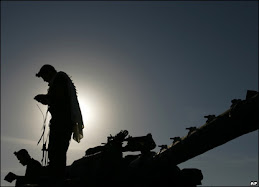Emunah and Bitachon on Sukkot

Today is the second to last day of Sukkot. For 6 days, we have sat in our Sukkah, amidst the cold and chill, shaken by wind and rain, and yet we stand. We have eaten our meals out here. During the week-long chag, we have ventured forth from our warm, comfortable homes to make the sukkah, this little temporary hut, our dwelling place.
The sukkah, its bare walls and schach roof, teaches us that life is temporary. Despite our best intentions to secure ourselves, life is just as shaky and rough as a sukkah. There was once a man traveling through Europe in the 1800’s. He came to the town where the Chofetz Chaim had lived. The traveler stopped in to meet the great Talmid Chuchum. When he arrived at the house, he saw that the Chofetz Chaim lived in a tiny home. He knocked on the door and when he looked inside he saw a nearly empty one-bedroom apartment. The traveler asked the Chofetz Chaim, “aren’t you the great Chofetz Chaim? How can you live like this? Where are all of your possessions?” The Chofetz Chaim turned to the traveler and posed the same question. “Where are all of your possessions? All you have with you is a suitcase.” The traveler answered, “Well, I am just passing through,” to which the Chofetz Chaim responded, “I too am just passing through.”
Out here, away from our big secure brick walls, we have none other to rely on that HaShem. In the sukkah, we are literally in His presence. It makes us realize how all of the events of our lives, all of the pain, the suffering, the blessings and the harshness, how all of it comes from HaShem. We are required to look upwards and to call out unto Him. In the sukkah, there is no hiding from the Ultimate Reality: HaShem, the One and Only.
The Talmud quotes two opinions as to why we sit in the sukkah. Rabbi Akivah explains that it is because the Children of Israel sat in sukkot when they left Egypt. Rabbi Eliezer holds that it represents the clouds of glory that G-d encircled Israel in during their sojourn in the desert. The Shulcha Aruch, which never holds by the opinion of Rabbi Eliezer, surprisingly agrees with him. So what are the clouds of glory? Why do we commemorate them as opposed to all of the other miracles that G-d performed for us in the desert? The answer is simply. G-d provided the Nation of Israel with heavenly manna and a travelling well of water during our 40 years. And yet we don't commemorate those miracles because G-d had to provide us with food and water. He took us out of Egypt so He had the responsibility of feeding us. But the Clouds of Glory were simply for our own comfort. G-d led us by a pillar of cloud by day and a pillar of fire by night. He flattened out the desert for us, raised valleys and lowered mountains. He did not let our foot falter. HaShem protected us from the elements, made sure that we didn't shvitz or get uncomfortable. The Clouds of Glory are HaShem going the extra mile to show us how much He loves us. So Sukkot is the celebrationg of G-d's love for Am Yisrael.
Yisrael, betach be'HaShem, ezram u'maginam hu. Israel, trust in HaShem, their Helper and Shield. Everything that happens to us comes directly from HaShem, the all Merciful Father. Despite the apparent harshness and injustice of a situation, it is all for the best. HaShem is kind to all and only wants us to grow. Harsh and sweet both come from HaShem as test for out own good.
Chag sameach!

























3 comments:
Certainly! Am Yisrael has an obligation to be a light unto the nations. That's why I believe that Israel has a moral obligation to end the genocide in Darfur and to support human rights worldwide.
Anony makes a very good point. The genocide of the Armenians at the hands of the Turks should be remembered the same way the Holocaust is remembered. The Israeli gov't should be ashamed of itself for many, many abominations, one of which has been its denial of the Armenian Holocaust.
Of course! It is shameful to kowtow to Turkey and deny the Armenian genocide in the name of "friendship". However, Israel's chief rabbi, Rabbi Yonah Metzger, has met with Armenian leaders and pledged to help remember.
Post a Comment